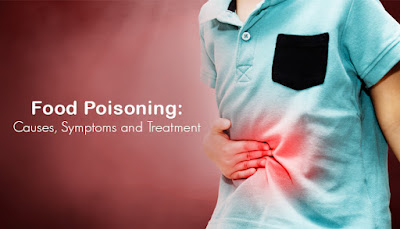Introduction
Food poisoning is a common yet distressing condition that occurs when consuming contaminated food or beverages.
It is essential to be aware of the symptoms associated with this ailment in order to promptly recognize and address the issue.
In this article, we will explore the various signs and symptoms of food poisoning and provide valuable insights on how to handle such situations.
Common Symptoms of Food Poisoning
When exposed to harmful bacteria, parasites, viruses, or toxins present in contaminated food, the human body responds with a range of unpleasant symptoms.
These symptoms may vary depending on the type of contaminant ingested and the individual's immune response.
Here are some common food poisoning symptoms to be mindful of:
Nausea and Vomiting: One of the hallmark indications of food poisoning is sudden nausea, often accompanied by episodes of vomiting. This occurs as the body's defense mechanism attempts to expel the harmful substances.
Example: A sudden wave of nausea overwhelmed Sarah after consuming the undercooked seafood, ultimately leading to relentless vomiting.
Abdominal Pain and Cramps: Severe or persistent abdominal pain and cramps are frequently experienced during food poisoning. These pains may range from mild discomfort to excruciating agony, causing significant distress.
Example: Robert's enjoyment of the family picnic was abruptly disrupted by agonizing abdominal pain and cramps, leaving him doubled over in discomfort.
Diarrhea: Another prevalent symptom of food poisoning is diarrhea, often accompanied by loose or watery stools. It is the body's attempt to flush out the toxins ingested from the contaminated food.
Example: Emma's worrisome bout of diarrhea left her feeling weak and dehydrated after mistakenly consuming spoiled dairy products.
Fever: In certain cases, food poisoning can trigger fever as the body endeavors to combat the infection. A high body temperature, often accompanied by chills, can be indicative of a more severe form of food poisoning.
Example: Jonathan's body temperature soared, and he experienced relentless shivering while battling a high-grade fever during his bout of salmonella poisoning.
Muscle Aches and Fatigue: Food poisoning can leave individuals feeling exhausted and weak, accompanied by generalized muscle aches.
These symptoms are a result of the body's immune system working to fight off the toxins.
Example: Olivia's seemingly endless bout of muscle aches and fatigue made her feel utterly drained, making even the simplest tasks feel insurmountable.
Less Common Symptoms of Food Poisoning
While the aforementioned symptoms are more frequently observed, food poisoning can also manifest in other, less common ways.
It is important to be aware of these less typical symptoms, as they may indicate a specific type of foodborne illness or complications.
Headaches: In some instances, food poisoning can trigger debilitating headaches, often accompanied by dizziness or lightheadedness. These symptoms can be a result of dehydration or the effect of toxins on the central nervous system.
Example: Susan's pounding headache and dizziness following a questionable meal left her feeling disoriented and unable to concentrate.
Blood in Stool: Food poisoning, particularly certain types caused by bacteria or parasites, can result in bloody or black stools. This alarming symptom should be taken seriously and requires immediate medical attention.
Example: Michael's worry escalated when he discovered blood in his stool after consuming a suspected contaminated meat product, driving him to seek urgent medical assistance.
Dehydration: The combination of persistent vomiting, diarrhea, and loss of fluids during food poisoning can swiftly lead to dehydration. This condition requires prompt attention, as it can worsen an individual's overall health.
Example: Clara's parched throat and dizziness were clear signs of dehydration during her battle with a severe case of food poisoning. Hydration became her utmost priority.
Neurological Symptoms: In rare cases, certain types of food poisoning can result in neurological symptoms such as tingling sensations, weakness, or temporary paralysis. These symptoms should never be taken lightly and necessitate immediate medical intervention.
Example: James was alarmed when he experienced temporary paralysis and tingling in his extremities after ingesting food contaminated with a rare bacteria, prompting an emergency hospital visit.
Conclusion
Recognizing the symptoms associated with food poisoning is crucial for prompt identification and appropriate management.
By familiarizing ourselves with the range of symptoms, we can act swiftly to alleviate discomfort, seek medical assistance if necessary, and prevent further complications.
Remember, if you suspect you or someone else is experiencing food poisoning, it is always advisable to consult a healthcare professional for personalized guidance and treatment.









